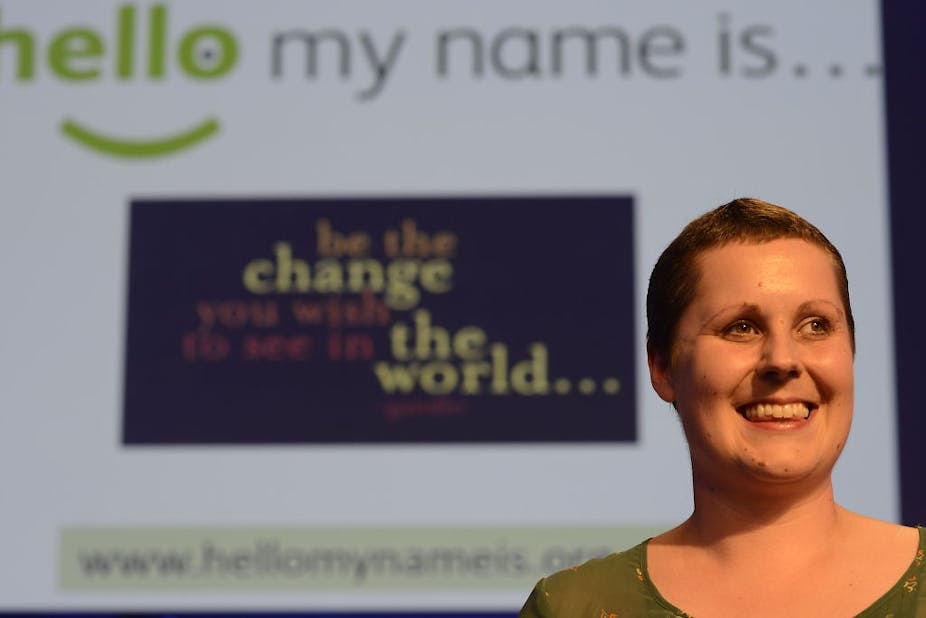A terminally ill doctor has started a campaign to encourage healthcare staff to introduce themselves to patients. Kate Granger initiated the “Hello my name is …” campaign while she was hospitalised and dismayed by staff making her feel “like just a diseased body and not a real person”.
The essence of the campaign is that NHS staff should use the opportunity of introducing themselves to help build a relationship with their patients. Newly launched, it already has 400,000 doctors, nurses, therapists, porters and receptionists signed up to the campaign and it has quickly been supported by prime minister David Cameron and Health Secretary Jeremy Hunt.
The responses to the campaign have ranged from it making all the difference, to complete indifference so long as the medic does their job well. Some patients don’t like staff addressing them by their first names. Staff responses include the defence that they’ve always introduced themselves to patients, while others fear that too much familiarity could be problematic for the patient doctor relationship.
Well, 400,000’s a good start to getting all 1.7m NHS staff to introduce themselves when meeting a patient, and although it is well known that you can’t make all of the people happy all of the time, this sounds like it could make more of the people happy, more of the time, which is surely a good thing.
Lessons from marketing
Bedside manner and making patients feel comfortable is undoubtedly an important part of treatment. Here, the NHS can learn something from marketing to improve its customer relations. Marketing has understood the role identity plays from the earliest days of Freud, Dichter, and research into what motivates people. The objective of many marketing campaigns has been to find ways of engaging more directly with customers.
As customers, what we buy is often represented as an expression of our identity, or perhaps who we would like to be. But our name above all is crucial to who we are and we all like the sound of our names. Conversely, replacing names with numbers has been one way of dehumanising people in oppressive regimes. It is also just as important for consultants and nurses to address us in the way we would like, as it is for them to tell us who they are.
Name campaigns
The recent attempts to get closer to customers through the use of first names will not have gone unnoticed. When you go to Starbucks you will now be asked your name, apparently to make Starbucks a more friendly brand. Coca-Cola has “unbranded” by putting your name on their bottle. As a marketing person this sometimes strikes me as superficial, but essentially it’s a simple way to take an extra step closer to your customer and it’s been highly successful.
When it comes to our health and the people caring for us, taking that extra step towards us seems infinitely more important. Exchanging names in this case is the start of a very important conversation, one which allows patients to feel able to ask questions and share all their concerns with NHS professionals, who can take the time to answer and inform.
It’s a serious subject, and the last thing we would want is for this brilliant initiative to fall into the trap that some campaigns do where staff are required to trot out meaningless pleasantries, devoid of the sentiment behind them.

